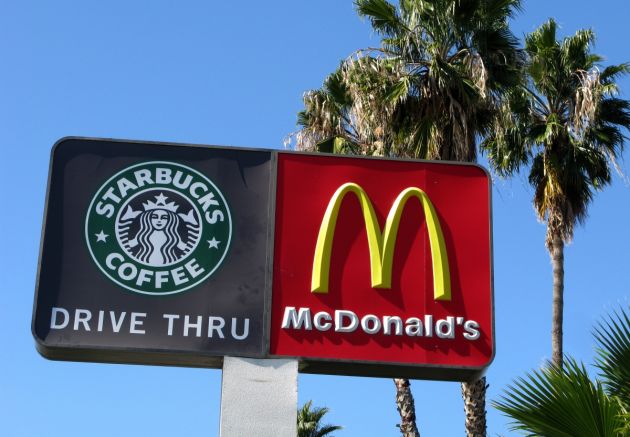'Porn Free WiFi' campaign still working on McDonald's, Starbucks in US

A public campaign that has nearly 25,000 supporters says it still trying to persuade McDonald's and Starbucks to install anti-pornography filters on their in-store free WiFi networks.
The "Porn Free WiFi" campaign, organized by the Internet safety group Enough is Enough (EIE), is urging the fast-food and coffee giants to implement Internet filters in their U.S. stores,
The campaign aims to stop customers from accessing or distributing child pornography and graphic adult pornography via their free Internet connections, said Baptist Press citing a report by Kiley Crossland for World News Service.
To commemorate October National Cyber Security Awareness Month, Enough Is Enough® (EIE) on October 2 launched, "Porn Free Wi-Fi," http://www.friendlywifi.org.
It said it is a new initiative to encourage corporate America to join the fight to prevent Internet-initiated sexual exploitation of children.
EIE said it has been on the frontlines of Internet safety for more than 20 years and this campaign is its latest effort to protect children online.
"Now is the time for corporate America to take a stand against Internet pornography and child pornography," said Donna Rice Hughes, CEO of EIE.
"Recent peer-reviewed research shows the extreme nature of Internet pornography is having a destructive impact on the mental, emotional and sexual health of adolescents, including addictive and even criminal behaviour.
"If we are going to make a difference and protect the younger generations, we must do so now - together."
EIE cites news stories chronicling instances of open WiFi hotspots becoming hideaways for criminals trafficking child pornography or sexually soliciting children said the World News report.
"The "Porn-free WiFi" campaign is not just about protecting our children from viewing hard-core pornography using public hotspots – it's also about limiting the safe-haven that open WiFi creates for sexual predators," Rice Hughes said.
UK STORES
EIE sent letters to McDonald's and Starbucks in April, applauding both businesses for pro-actively implementing Internet filters in their U.K. stores.
McDonald's U.K. website claims to be the first company to join a family-friendly WiFi filtering initiative called Mumsnet.
Earlier in 2014, Starbucks joined an industry-wide public WiFi filtering effort called "Friendly WiFi."
Banners are displayed in restaurants offering free Internet filtered for explicit content.
The World News report noted that in 2013, British Prime Minister David Cameron introduced nationwide policies to protect children from exploitive and graphic material online, including a default setting of "opt-out" for all Internet service providers.
In the letters, Hughes urged the two U.S.-based companies to implement the same filters in their stores, noting other major chains, like Chick-fil-A and Panera, already filter their free Internet access voluntarily.
"We appreciate your concern and are looking into options for effective filtering in the U.S.," McDonald's said in a written response to Hughes.
The fast-food chain is continuing a dialogue with EIE, Hughes said, but in the seven months since the letter exchange neither McDonald"s nor Starbucks has added filters to their combined 25,000 U.S. stores.
World News said support for the "Porn Free WiFi" campaign is growing.
In the last few weeks, three more partner organizations - Concerned Women for America, Morality in Media, and the National Homeschoolers Association - have joined the EIE camp.
The group aims to approach McDonald's and Starbucks again, this time also including the petition signatures it has collected.
Hughes is confident the two major stores will soon implement filters, setting an example for other free WiFi providers.
"This is something that any family and any parent can get behind," Hughes said. "This is not a controversial request we are making."